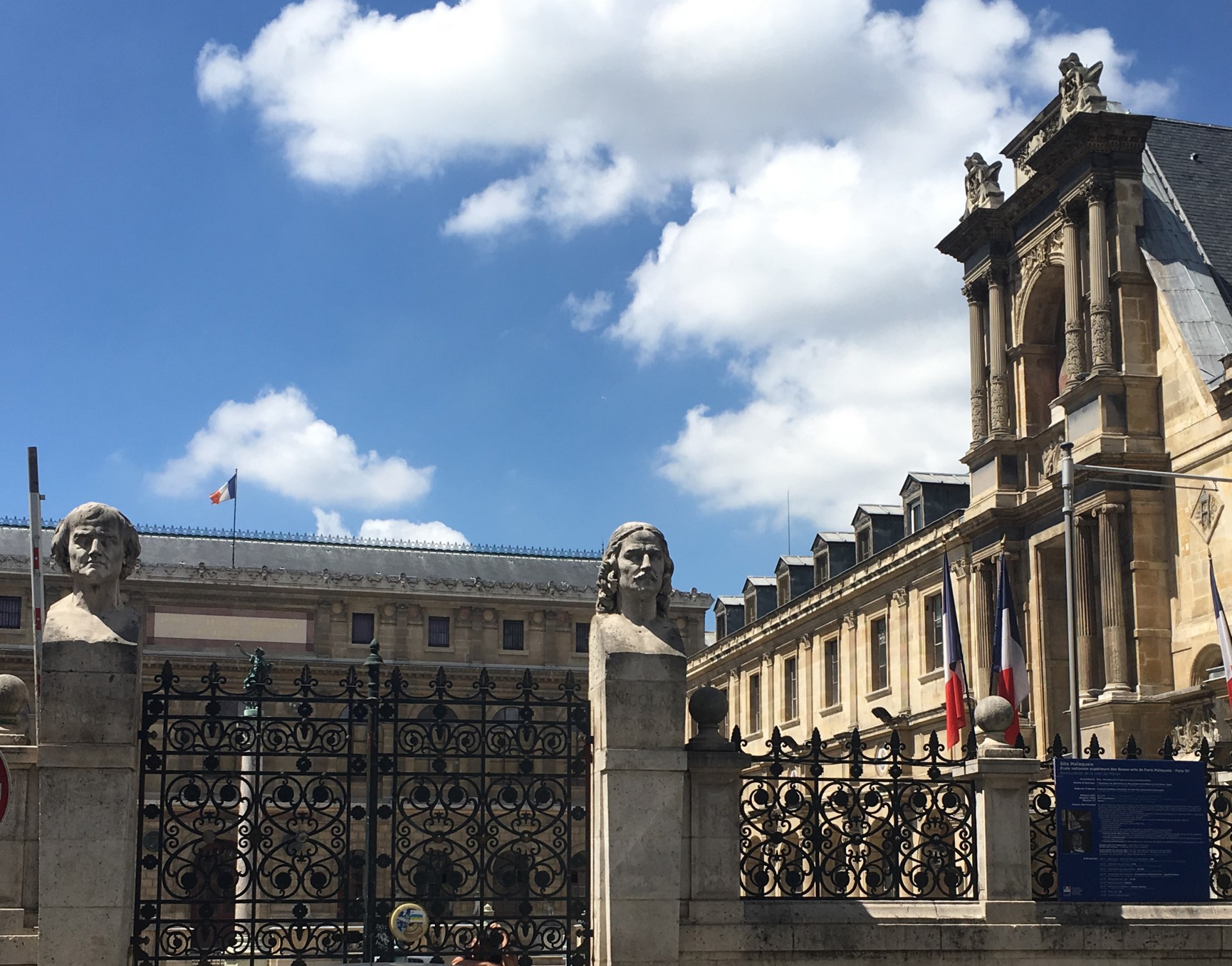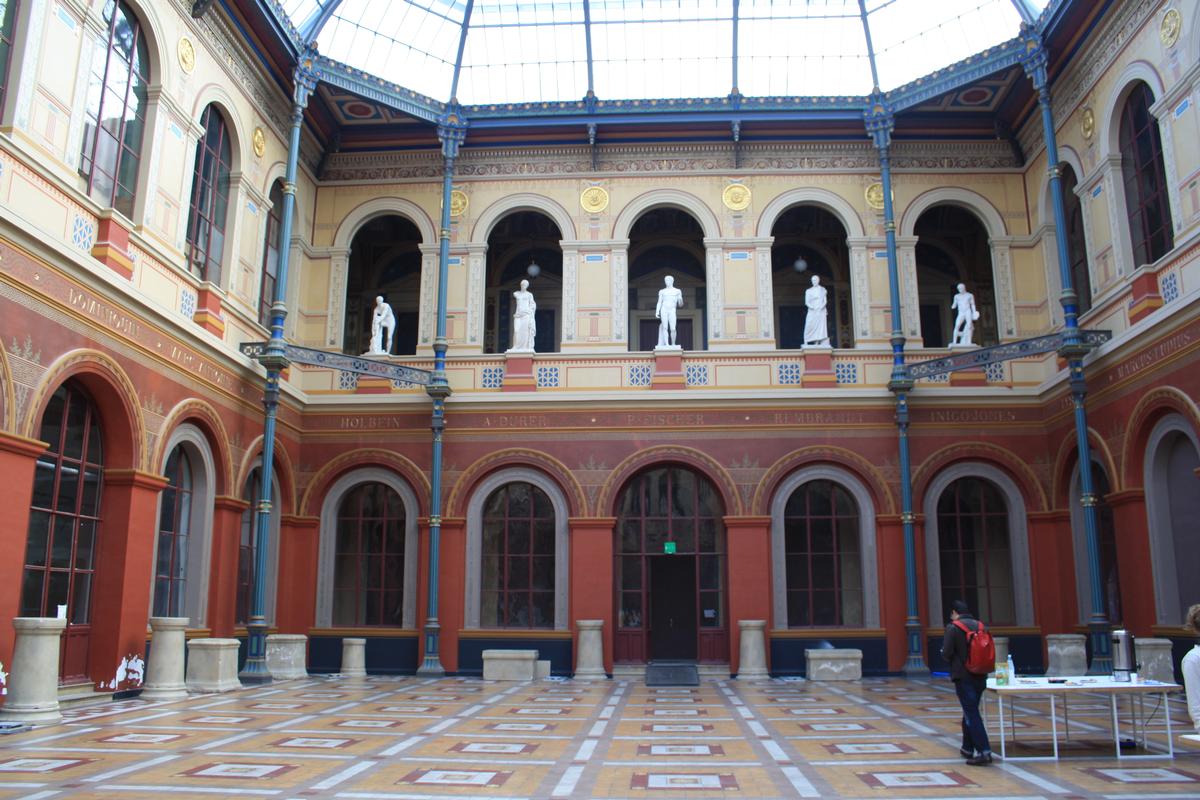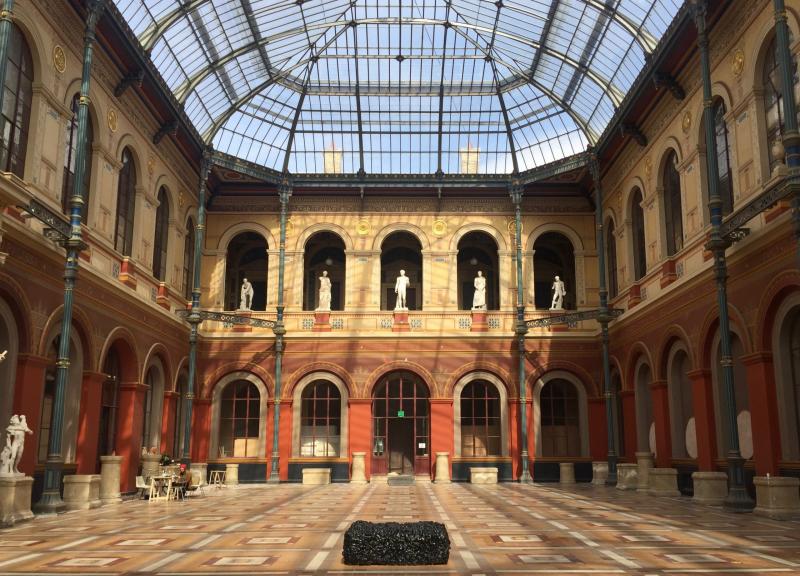
The Ecole des BeauxArts Zak Ghanim
En 1816, la Restauration attribue à l'Ecole des beaux-arts, institution jusque-là itinérante, un grand terrain face au Louvre, rive gauche. L'architecte Félix Duban, Grand Prix de Rome 1823, réorganise les bâtiments existants en s'inspirant des relevés archéologiques du portique d'Octavie à Rome.

L’École des beauxarts et ses bâtiments au XIXe siècle Histoire
In all, the book contains 423 illustrations, 23 in color, and 10 inserts.The Architecture of the Ecole des Beaux-Artsoffers an enlightening analysis of the school. The authors examine Beaux-Arts concepts of theory and practice and assess major work by each of the school's main factions. The essay by Richard Chafee covers the school's complex.

Art news daily 5 July Apollo Magazine
Découvrez L'École des beaux-arts et ses bâtiments au XIXe siècle analysée par Charlotte DENOËL au. Album de l'ecole des Beaux-Arts. Photographie de Louis-Philippe-François Boitte d'une peinture de Charles Rey de Sarlat.. Beau-frère de Debret et lauréat du grand prix d'architecture, le jeune architecte Félix Duban (1798-1870.

19TH CENTURY, France Félix Jacques Duban (17971870) Ecole des Beaux
Jacques Félix Duban (14 October 1798, Paris - 8 October 1870, Bordeaux) was a French architect, the contemporary of Jacques Ignace Hittorff and Henri Labrous.

École nationale supérieure des beauxarts, Paris, France Jacques
Jacques Pons, « Félix Jacques Duban, architecte du gouvernement (1798-1870) », in Positions des thèses de l'École nationale des chartes, 1986, p. 169-181. (en) David Van Zanten, « Félix Duban and the Buildings of the École des beaux-arts », in The Journal of the Society of Architectural Historians, mars 1978, vol.XXXVII, n o 3, p.

L'école des BeauxArts, deux siècles d'histoire de l'art à Paris
L'Académie des beaux-arts, ainsi dénommée depuis 1816 et descendante des académies royales, est l'une des cinq académies qui forment l'Institut de France.. Félix Duban. Architecture. Élu(e) le 18 mars 1854. Prédécesseur Louis Visconti. Né(e) à Paris. Le 14 octobre 1797. Date de décès

Ecole Nationale Supérieure des BeauxArts (Paris) (Paris ( 6 ème
During the same period, a small revolution was taking place at the École des Beaux-Arts, led by four young architects; Joseph-Louis Duc, Félix Duban, Henri Labrouste and Léon Vaudoyer, who had first studied Roman and Greek architecture at the Villa Medici in Rome, then in the 1820s began the systematic study of other historic architectural styles including French architecture of the Middle.

19TH CENTURY, France Félix Jacques Duban (17971870) Ecole des Beaux
The main building was designed by Félix Duban (1798-1870) as an architectural model, backdrop and showroom for fragments from the defunct Musée des Monuments Français as well as a large teaching collection of plaster casts and building models (fig. 2).. Architecture Students at the École des Beaux-Arts, 1846-1946 (New York, 2014).

LA ARQUITECTURA BEAUX ARTS, ORIGEN Y ESTILO DE PARÍS
Duban's "Compositions" amazed and delighted visitors to the posthumous exhibition of his work held at the Ecole des Beaux-Arts in 1872. These thirty or so Fantasies were a revelation because, after exhibiting at the Salon in 1831 and 1833, Duban had never again exposed himself to critical attack. Duban is one of the first architects to have restored polychrome in his surveys of antique.

L’école des BeauxArts, deux siècles d’histoire de l’art à Paris
The buildings housing the Ecole des Beaux-Arts, as erected by Félix Duban from 1834 to 1840, are a statement of an eclectic, so-called Romantic architecture. A modification of an earlier project by François Debret, they were highly controversial when built because of Duban's imposition of a system of Gothic and Renaissance historical references. The compositional framework within which Duban.

Ecole Nationale Superieure des BeauxArts, extanted building begun
Beaux-Arts architecture (/ b oʊ z ˈ ɑːr / bohz AR, French: ⓘ) was the academic architectural style taught at the École des Beaux-Arts in Paris, particularly from the 1830s to the end of the 19th century.It drew upon the principles of French neoclassicism, but also incorporated Renaissance and Baroque elements, and used modern materials, such as iron and glass, and later, steel.

19TH CENTURY, France Félix Jacques Duban (17971870) Ecole des Beaux
Locate and compare Écoles des beaux-arts in Haney Maple Ridge BC, Yellow Pages Local Listings. Find useful information, the address and the phone number of the local business you are looking for.

Ecole Des Beaux Arts Architecture ECOLE DES BEAUX ARTS DE PARIS (l
First, there was the Academy. The story begins in 1648 with its founding by Cardinal Mazarin, the Italian diplomat and politician who was chief minister for the king of France, the five year old Louis XIV. At its foundation it was named the Académie des Beaux art s, as this was the term given to institutions of learning during the late Middle.

19TH CENTURY, France Félix Jacques Duban (17971870) Ecole des Beaux
The Musée des Études of the École des Beaux-Arts in Paris is the culmination of a project which Felix Duban spent decades elaborating and which the glass roof of the central courtyard, accomplished by his successor Ernest Coquart, helped complete.. 24 GARLEFF Jörn, « L'École des Beaux-Arts de Duban… », p. 47-58.

19TH CENTURY, France Félix Jacques Duban (17971870) Ecole des Beaux
Félix Duban and the Buildings of the Ecole des Beaux-Arts. Journal of the Society of Architectural Historians, 161-174. Van Zanten, David.. T1 - Félix Duban and the Buildings of the Ecole des Beaux-Arts. AU - Van Zanten, David. PY - 1978. Y1 - 1978. M3 - Article. SP - 161. EP - 174.

Ecole des Beaux Arts, Paris (Founded during the Louis XIV, in 1648
The buildings housing the Ecole des Beaux-Arts, as erected by Felix Duban from 1834 to 1840, are a statement of an eclectic, so-called Romantic architecture. A modification of an earlier project by Francois Debret, they were highly con-. troversial when built because of Duban's imposition of a. system of Gothic and Renaissance historical.
